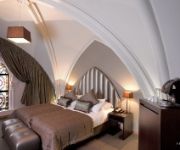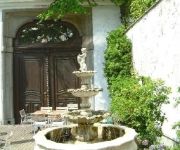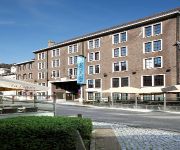Facts and Data
Webpages:
Official Unesco Page
View photos from OUR PLACE the World Heritage collection
Basis Data:
Unesco World heritage since: 1998
Size of heritage: 60 ha
Coordinates:
Longitude: 4,474°
Latitude: 51,031°
Summary
The Béguines were women who dedicated their lives to God without retiring from the world. In the 13th century they founded the béguinages , enclosed communities designed to meet their spiritual and material needs. The Flemish béguinages are architectural ensembles composed of houses, churches, ancillary buildings and green spaces, with a layout of either urban or rural origin and built in styles specific to the Flemish cultural region. They are a fascinating reminder of the tradition of the Béguines that developed in north-western Europe in the Middle Ages.
Location on Map
Show bigger map on Openstreetmap
Introduction
The Flemish Béguinages, located in the Flanders region of Belgium, are a collection of unique architectural and cultural sites that have been recognized as a UNESCO World Heritage site. These béguinages, which are found in the provinces of Antwerp, Limburg, Eastern Flanders, Western Flanders, and Flemish Brabant, are historically significant and provide a glimpse into the lives of the women who lived there.
History
The béguinages originated in the 13th century as communities for women who wanted to live a religious life without taking formal vows. These women, known as béguines, were not nuns but lived in a semi-monastic setting. The béguinages were established to provide a safe and supportive environment for these women, who often faced societal pressures and limited options for independence.
Over time, the béguinages grew in number and became an integral part of Flemish society. They were self-sustaining communities, with their own churches, houses, gardens, and communal spaces. The béguines lived a simple and devout life, dedicating themselves to prayer, work, and caring for the sick and elderly.
Architecture and Design
The Flemish béguinages are characterized by their unique architectural style, which combines elements of Gothic, Renaissance, and Baroque design. The houses within the béguinages are typically small, single-story dwellings with whitewashed facades and red-tiled roofs. The streets are narrow and winding, creating a sense of intimacy and tranquility.
Each béguinage has a central square or garden, often featuring a church or chapel as its focal point. These religious buildings are typically grand in scale and adorned with intricate decorations and artwork. The béguinages also include communal spaces, such as kitchens, laundry areas, and meeting halls, where the women would gather for meals and social activities.
Current State
Today, the Flemish béguinages continue to be places of cultural and historical significance. Many of them are still inhabited by women, while others have been converted into museums or tourist attractions. Visitors can explore the narrow streets, admire the architecture, and learn about the lives of the béguines through exhibitions and guided tours.
The béguinages are not only important from a historical perspective but also serve as a reminder of the unique role women played in Flemish society. They provide insight into the challenges faced by women in the past and the ways in which they sought to create independent and fulfilling lives.
The UNESCO World Heritage designation has helped to preserve and protect these sites, ensuring that future generations can appreciate their cultural and architectural significance. The béguinages continue to be cherished by locals and visitors alike, offering a peaceful and contemplative retreat from the bustling cities of Flanders.
Conclusion
The Flemish Béguinages are a testament to the strength and resilience of women throughout history. These unique communities provide a glimpse into the lives of the béguines and the important role they played in Flemish society. The architectural beauty and cultural significance of the béguinages make them a must-visit destination for anyone interested in history, architecture, and women's rights.
Hotels and places to stay
Vixx Hotel
Martin's Patershof
Hotel Mercure Mechelen Vé
Novotel Mechelen Centrum
Best Western Gulden Anker
Den Wolsack
NH MECHELEN
Dusk Till Dawn
Holiday Inn Express MECHELEN CITY CENTRE
Elisabeth
Videos from the area
Videos provided by Youtube are under the copyright of their owners.

















